
architect
products & services
paving-stones ● reused-paving
Location
Sangerhauser Weg, 12349 Berlin
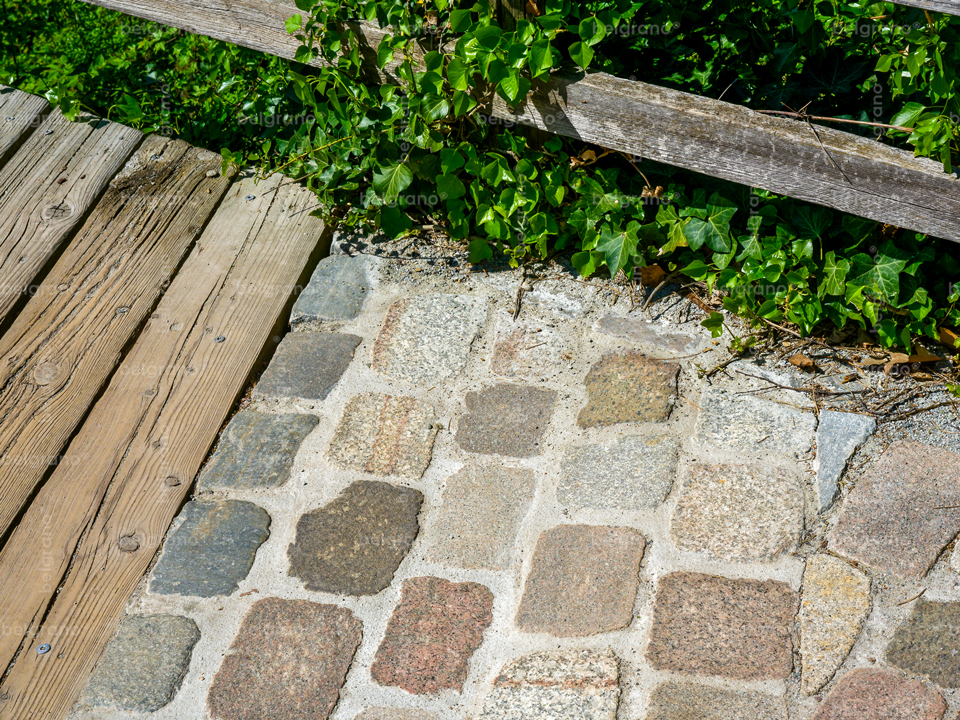
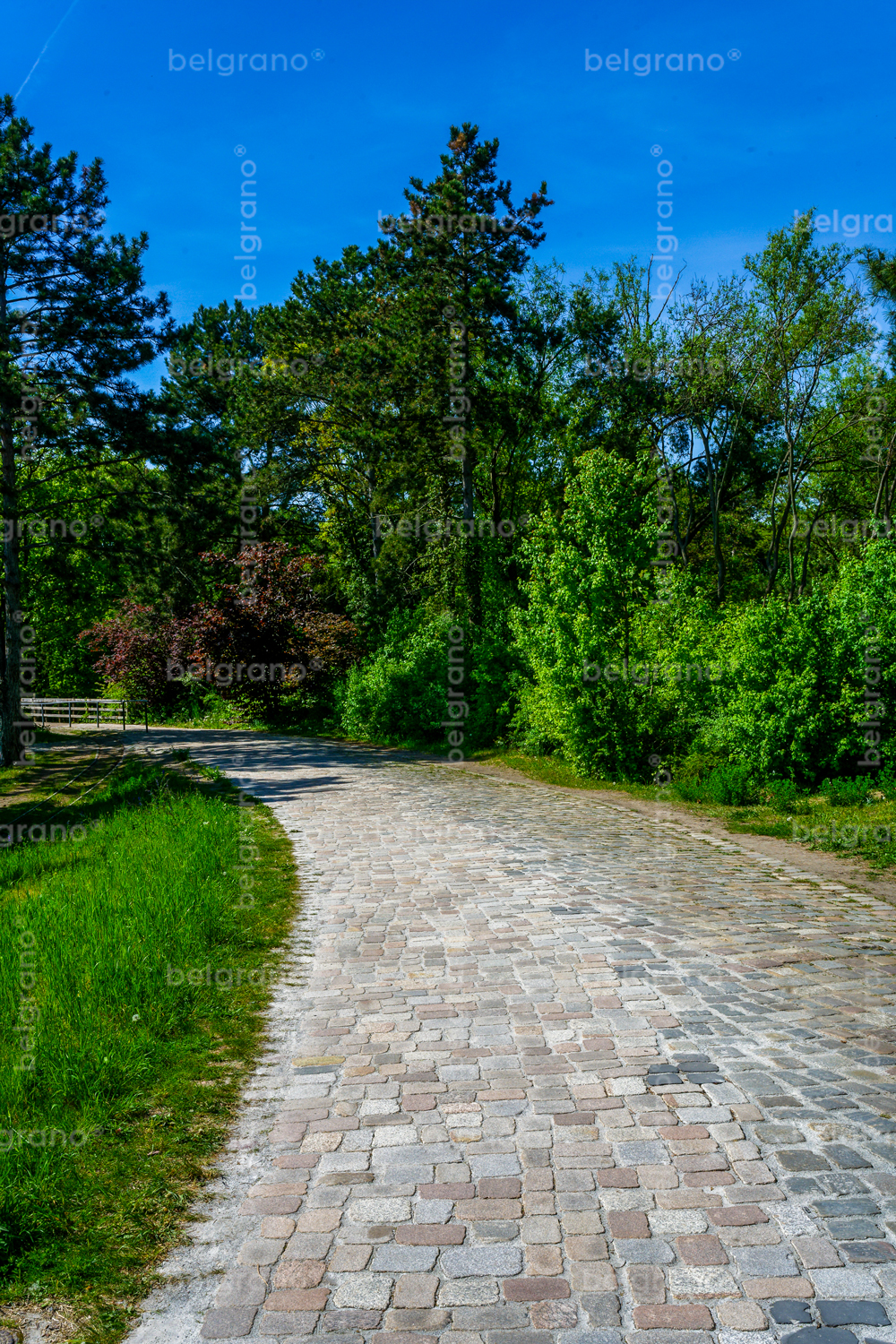
How can natural stone paving be creatively and technically adapted for contemporary use while preserving material quality and meeting today’s standards for accessibility and sustainability?
As part of the inclusive redesign of the park paths in Britzer Garten, a conscious decision was made to retain rather than replace the existing large-format paving. Approximately 1,260 square metres were carefully removed and flame-treated to meet current standards for accessibility, slip resistance, and dimensional precision. The refurbished stone was then reintegrated into the open space design.
In urban and open space planning, implementing barrier-free and inclusive concepts is becoming increasingly important. The goal is to design public spaces that meet the diverse needs of all users, regardless of age, mobility, or other factors. Inclusive landscape architecture systematically removes barriers and creates open spaces that ensure equal and unrestricted use for all.
Reused natural stone paving frequently deviates from today’s dimensional standards. Irregular formats, uneven edges, and natural tolerances complicate the implementation of accessible surfaces. Moreover, legacy materials often no longer meet current requirements for joint widths, surface evenness, and slip resistance.
In Britzer Garten, these challenges were resolved with a forward-thinking approach. The paving was precisely reworked to achieve an even surface with clearly defined joints and improved accessibility. Thanks to the unbound installation, the material remains fully recoverable and can be reused in future landscape transformations.
A tennis court-sized area of 68 square meters was redesigned using used basalt paving, while approximately 100 square meters of newly produced, light grey belgrano® granite was added to define clear functional transitions and highlight the tactile guidance system. The new open space remains restrained in design and supports the sustainable landscape architecture within the overall park setting.
The design by geskes.hack Landschaftsarchitekten responds to both aesthetic and functional requirements. The new routing ensures accessibility and inclusive usability while preserving the characteristic identity of the site.
This was achieved by reducing gradients, evening out joints, and creating clear spatial lines that facilitate intuitive movement through the park. For the first time, tactile guidance elements were incorporated into Britzer Garten’s path network to support blind and visually impaired visitors.
The project at Britzer Garten showcases the reintroduction of natural stone from deconstruction into the urban landscape through resource-conscious, technically sound, and design-oriented planning. The careful reuse of historic paving exemplifies a contemporary approach to sustainable, inclusive open space design.
BESCO supports such projects by providing expert advice, reused materials, and new natural stone paving to meet today’s design and functional requirements.
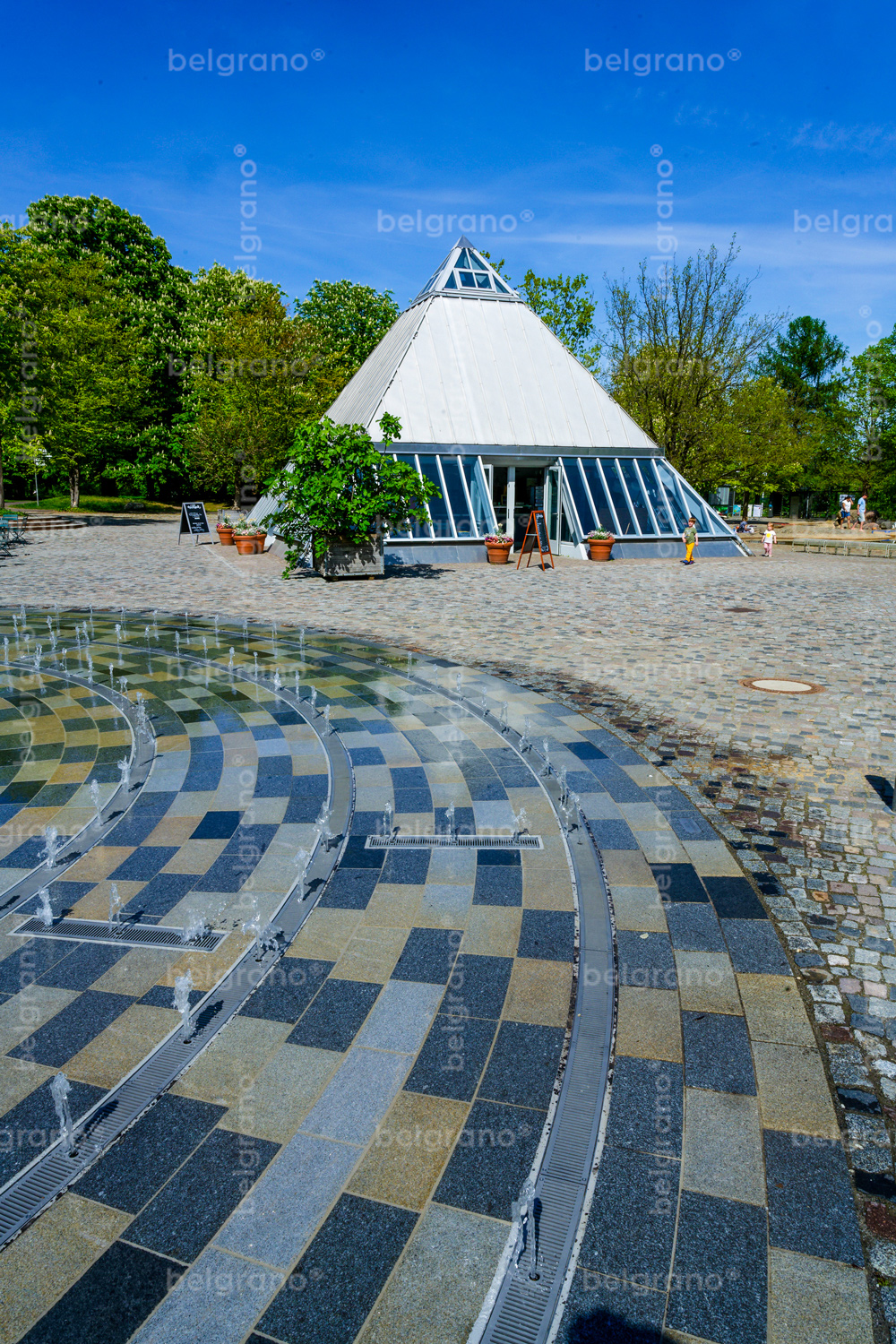
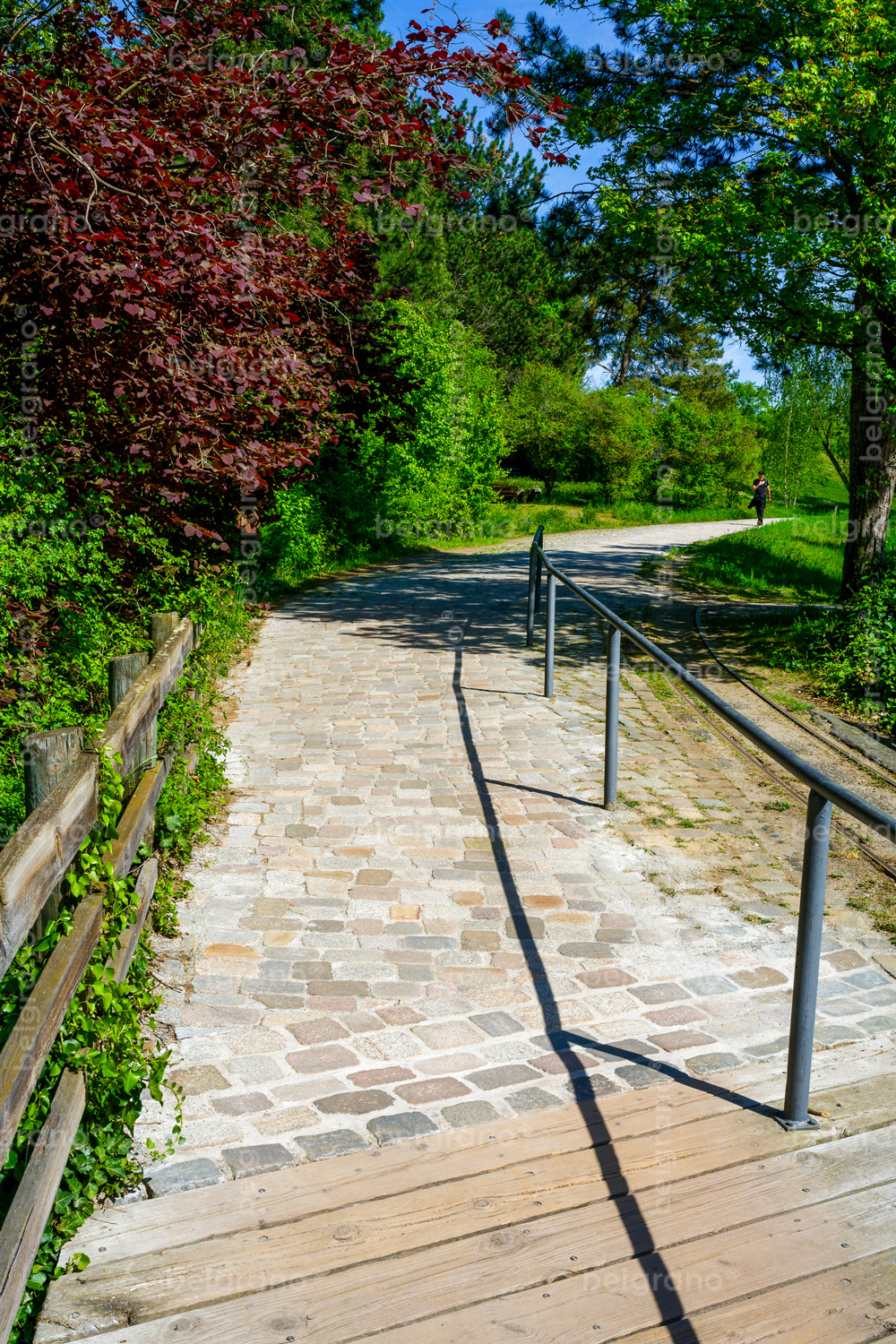
Find out more about the use and range of applications of natural stone.
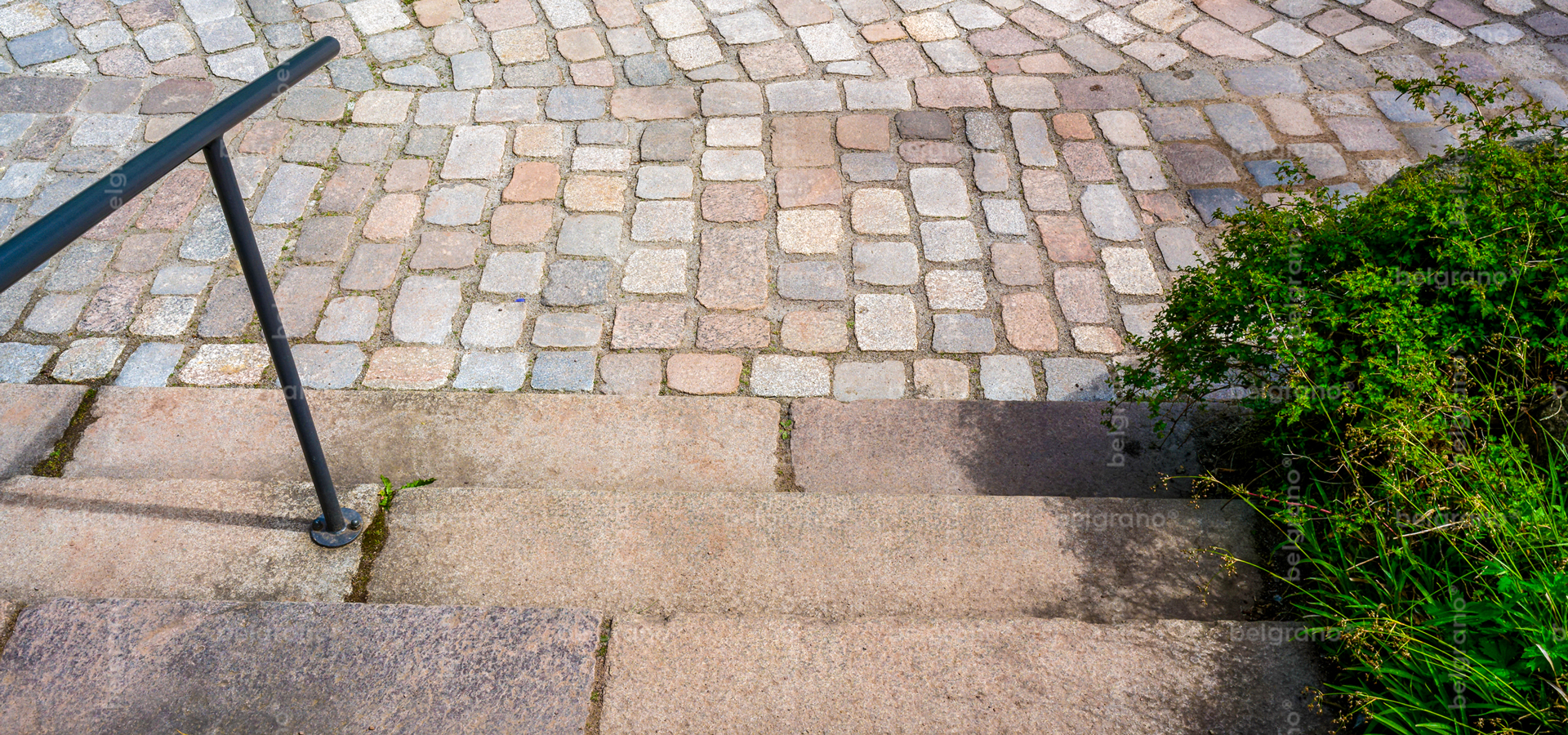
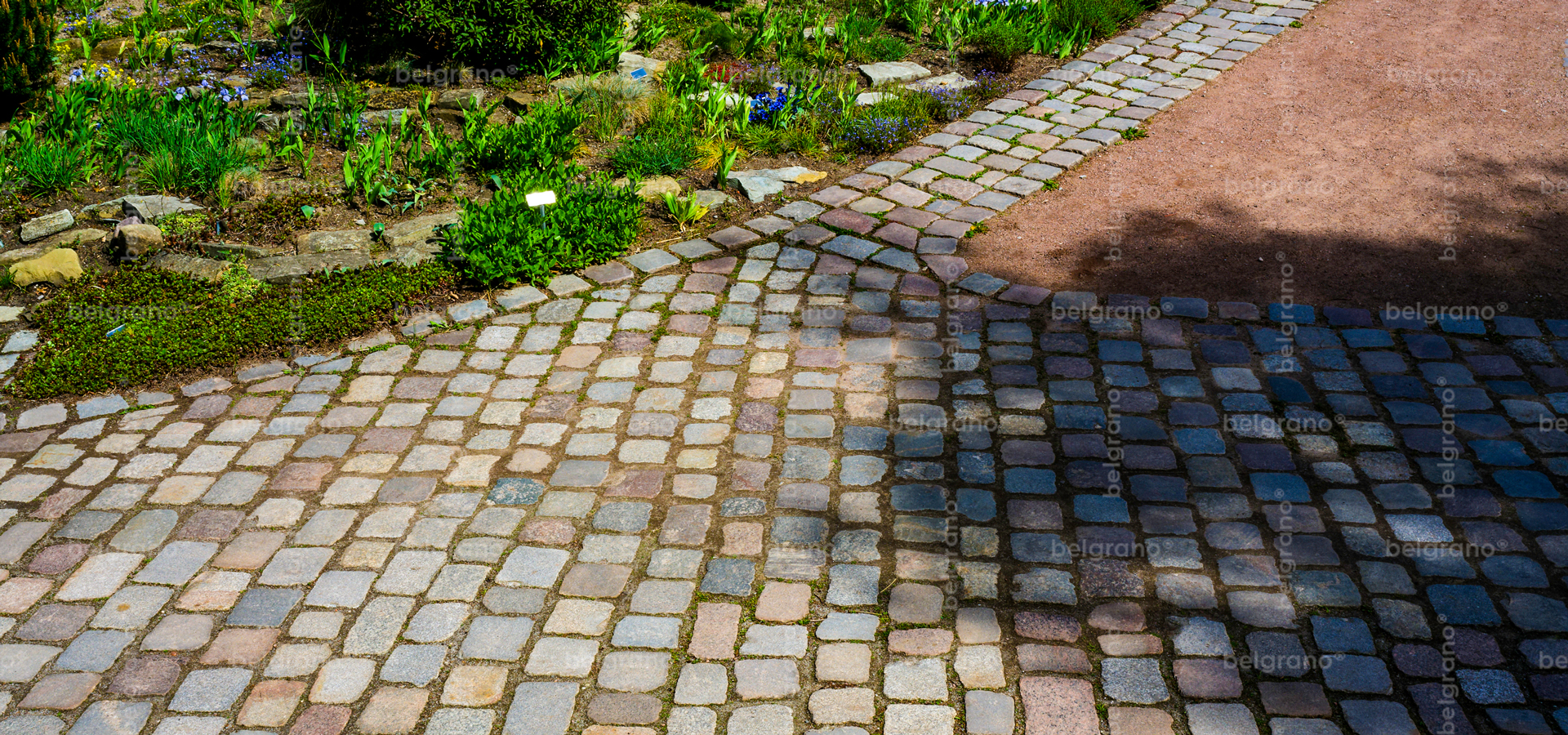
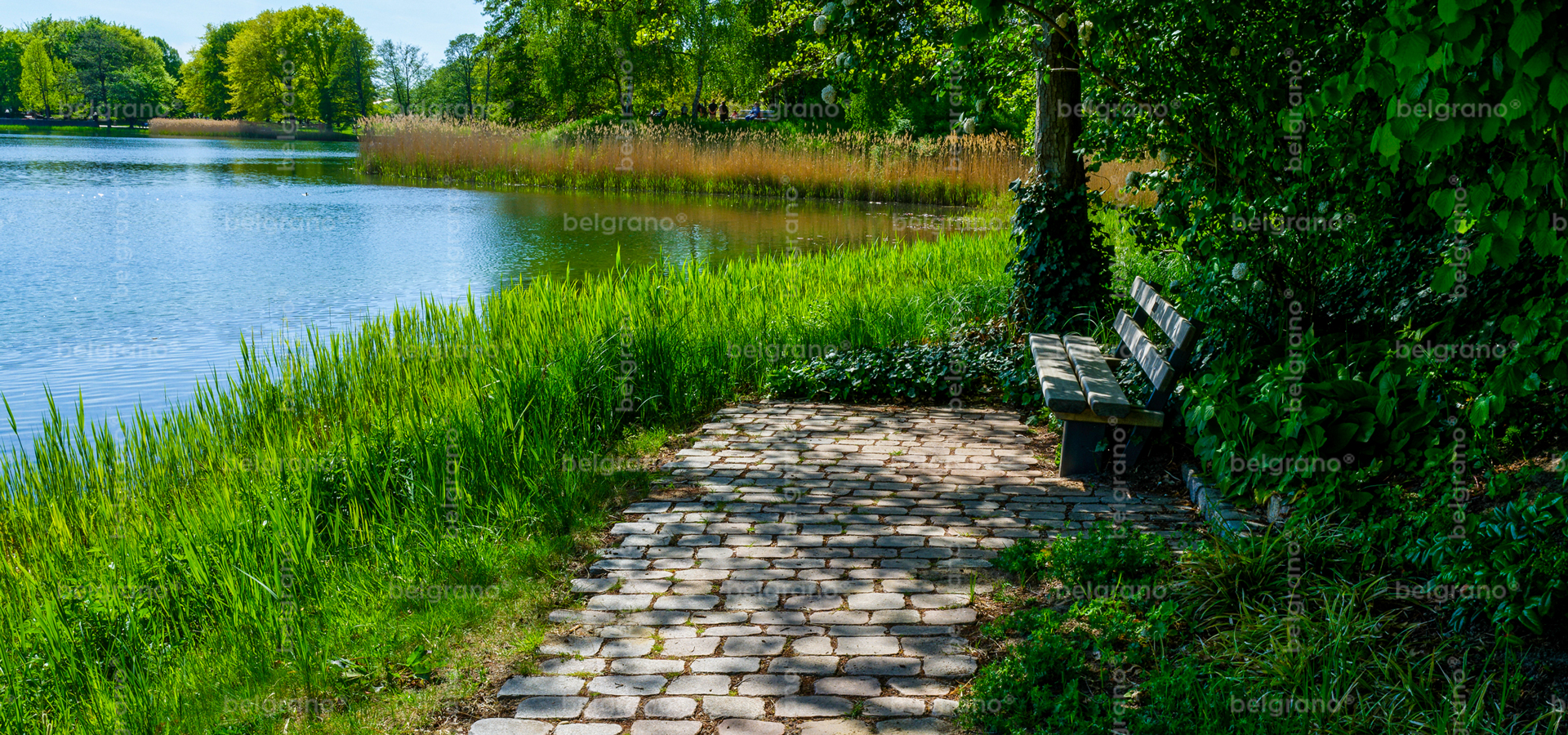

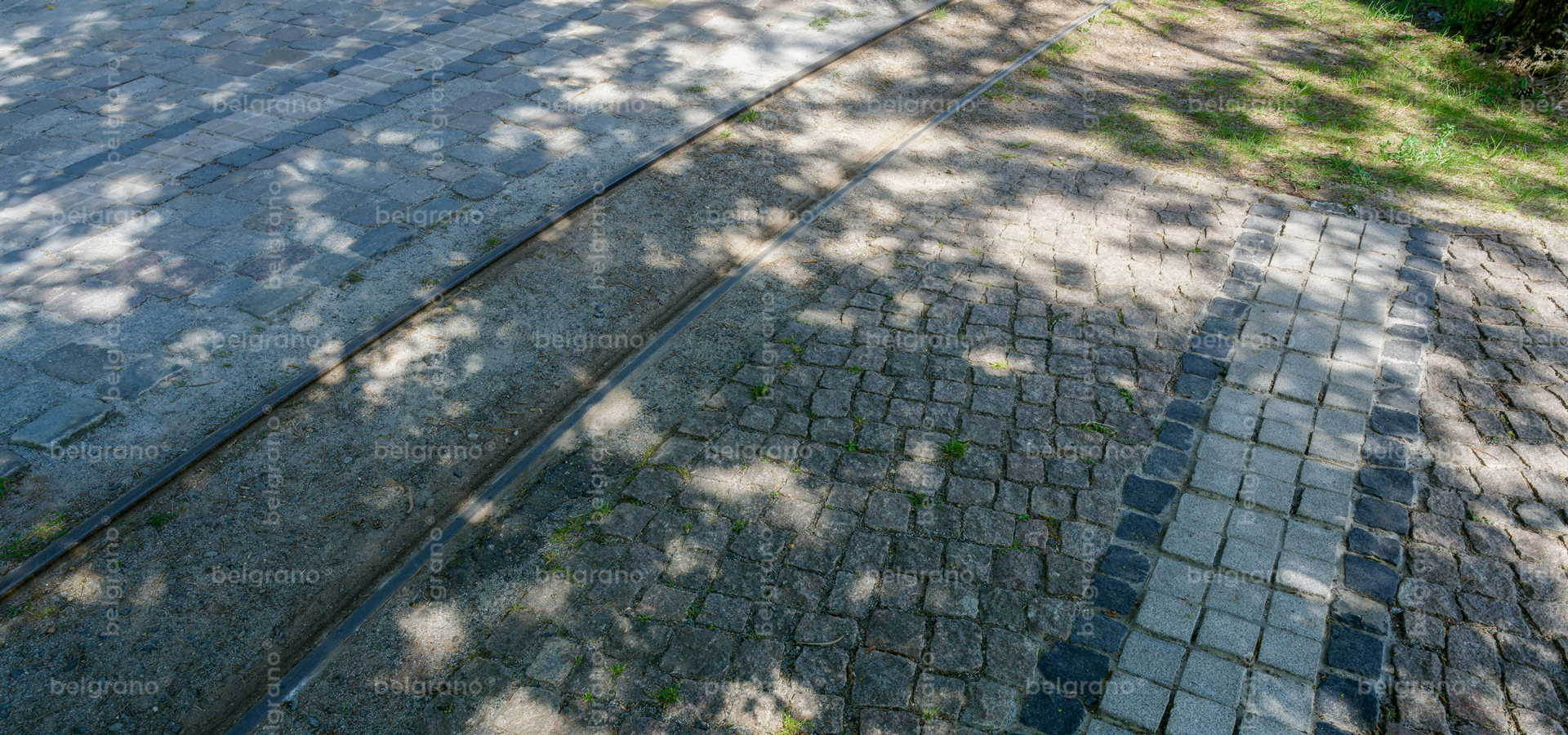
Parks & green areas